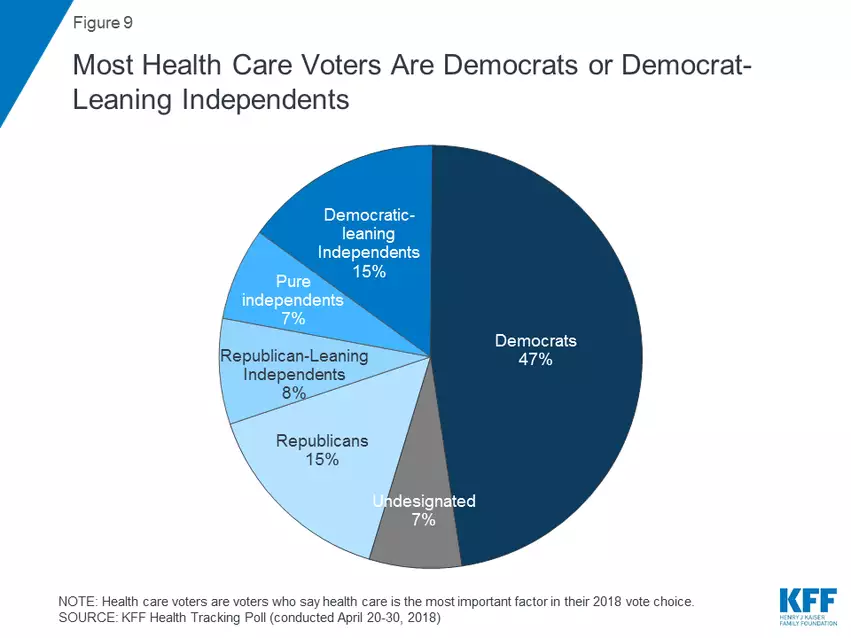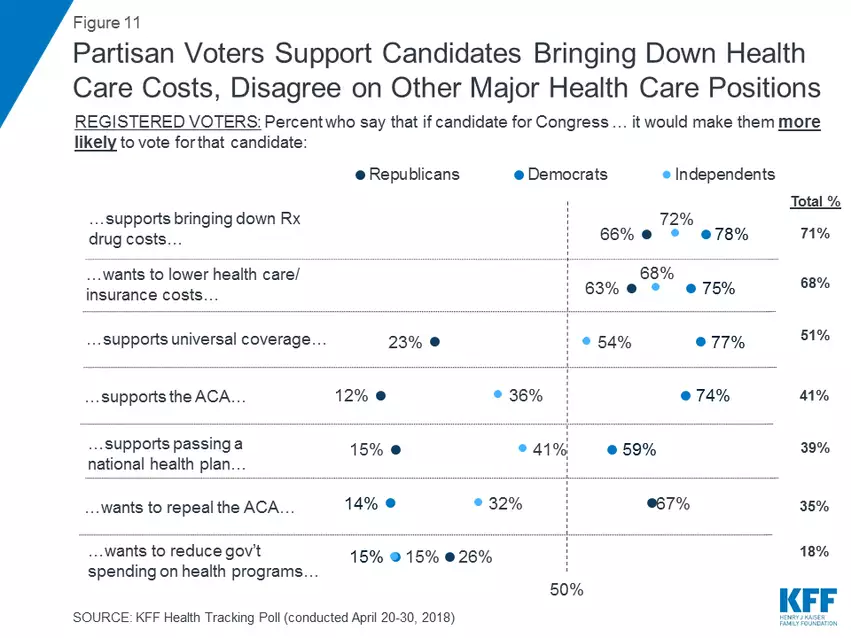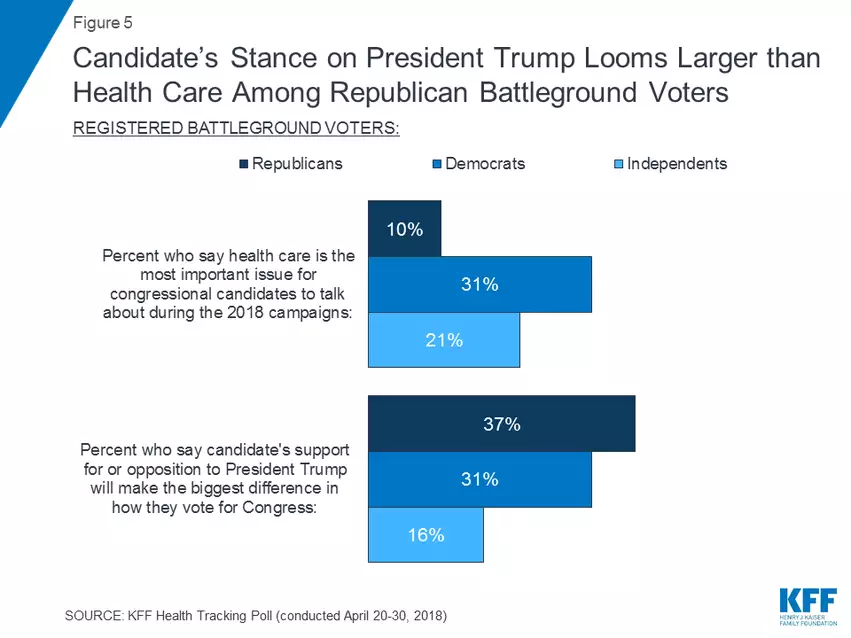3 things to know about ‘healthcare voters’ in 2018 elections
Four states held primary elections on May 8, kicking off a busy election season that will see most Tuesdays from now until mid-September having one or more states’ voters casting ballots. Judging by the latest poll from the Kaiser Family Foundation, healthcare will be a major issue for many in the coming months.
Nearly a quarter, 23 percent, of respondents to the poll named healthcare as the “most important factor” in how they vote in congressional races, with Kaiser labeling this group as “healthcare voters.” Some 30 percent of Democrats named healthcare among their top issues, more than any other issue, while it was a lower priority for independents (19 percent naming it a top issue) and Republican voters (15 percent).
As healthcare groups have discussed, a shift in Congress will have a major impact on health policy in the second half of President Donald Trump’s first term. If Democrats retake one or both houses of Congress, it’ll affect debates on repealing the Affordable Care Act (ACA) as well as changes to Medicare and Medicaid, leaving hospitals and health systems potentially waiting until after the next presidential election for major breakthroughs on policy priorities.
Here are three key takeaways from the poll:
1. Healthcare voters are mostly female, Democrats and anti-Trump
Nearly half (47 percent) of those who named healthcare as the most important factor in how they’ll vote identify as Democrats, according to the poll. Another 15 percent called themselves Democrat-leaning independents, the same percentage as those who identified as Republicans.
Their partisan lean in this election, however, is more distinctly Democratic—59 percent said if the election was held today, they’d vote for the Democratic candidate in their district and 70 percent disapprove Trump’s job performance.
The majority in this group are women (58 percent), white (56 percent) and 48 percent have only a high school education. Age-wise, the group is fairly evenly split, with the largest demographic in the 50-64 age range (33 percent).
2. Cost is their top priority…
When healthcare voters were asked to get more specific about their concerns, healthcare costs were named as the top issue by both Democrat-leaning voters (31 percent) and Republican-leaning voters (55 percent) in this group.
From there, however, the groups diverged, with Democrats naming universal coverage (18 percent) and concerns about quality of coverage and care (11 percent) as their top healthcare issue, while Republicans named Medicare/senior concerns (9 percent) and improvements to care delivery (8 percent).
Among all voters, there were some agreements across the partisan divisions on healthcare priorities. Majorities said they’d be more likely to support candidates who want to bring down prescription drug, insurance and healthcare costs overall. More specific positions split voters again—for example, only 23 percent of Republicans said they’d be more likely to vote for a candidate which supported universal coverage. If a candidate wanted to repeal the ACA, 67 percent of Republicans said they’d be more likely to vote for them, while 74 percent of Democrats said they’d support candidates who back the law.
3. …But not their only priority
Among all voters, 51 percent said healthcare is one of many factors in deciding how to vote and 25 percent said it’s not important. In fact, a candidate’s position on Trump appears to matter more among Democrats and Republicans, while independents give more weight to where candidates stand on healthcare.
Only 5 percent of voters responding to the poll were solely focused on healthcare, listing it as the only important factor in their decision at the ballot box.



